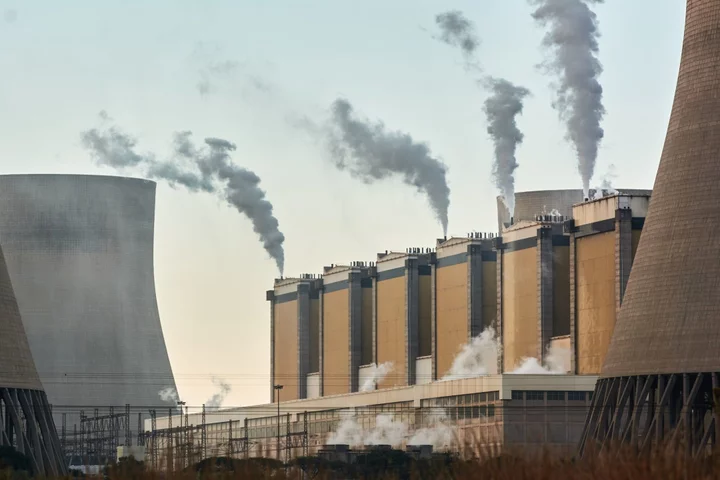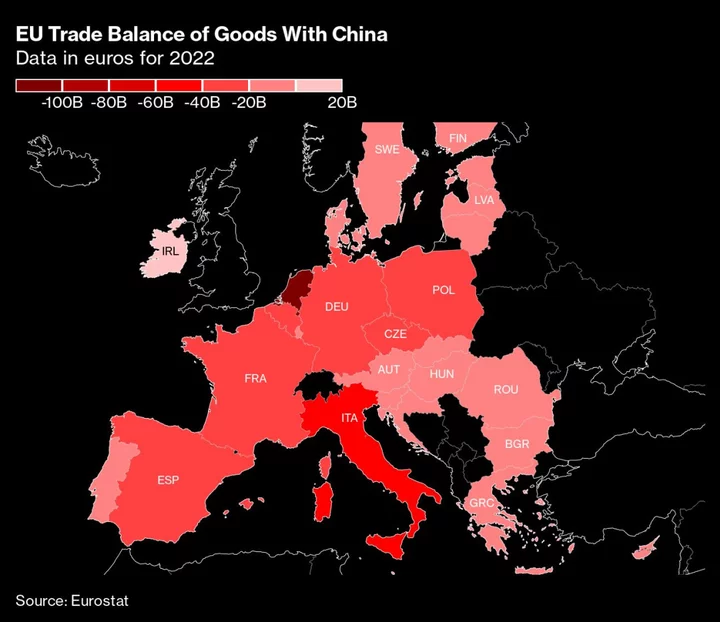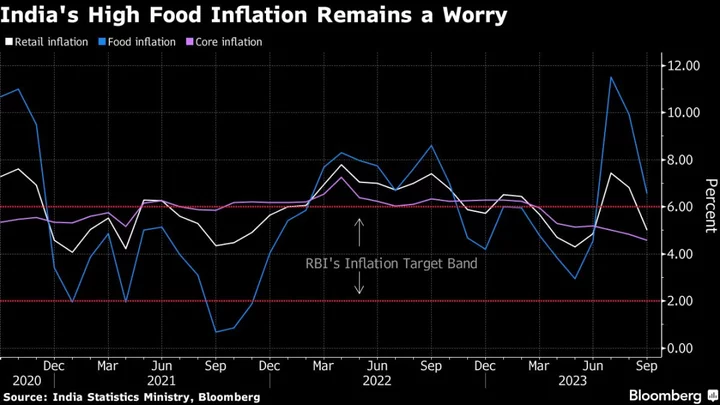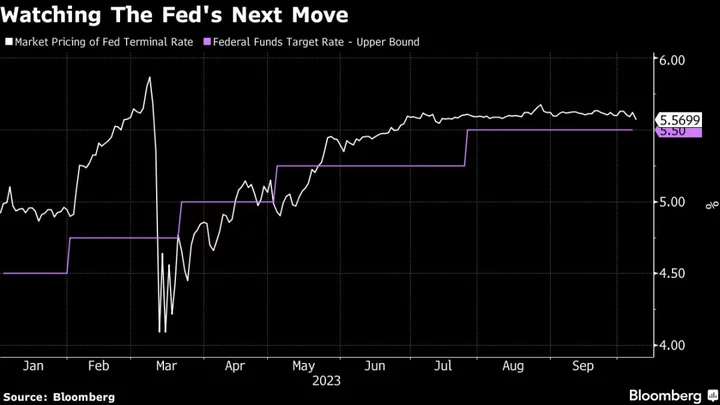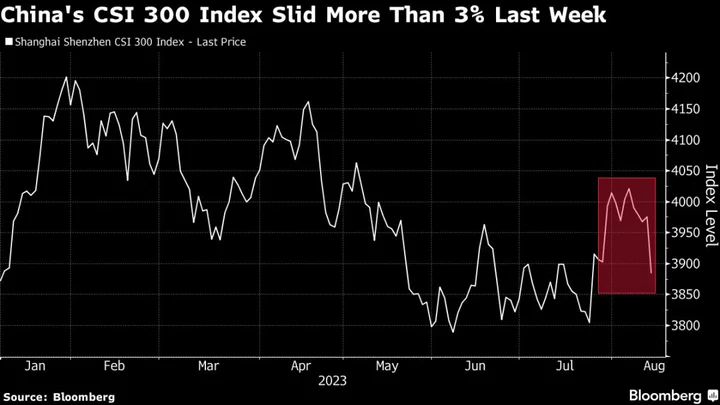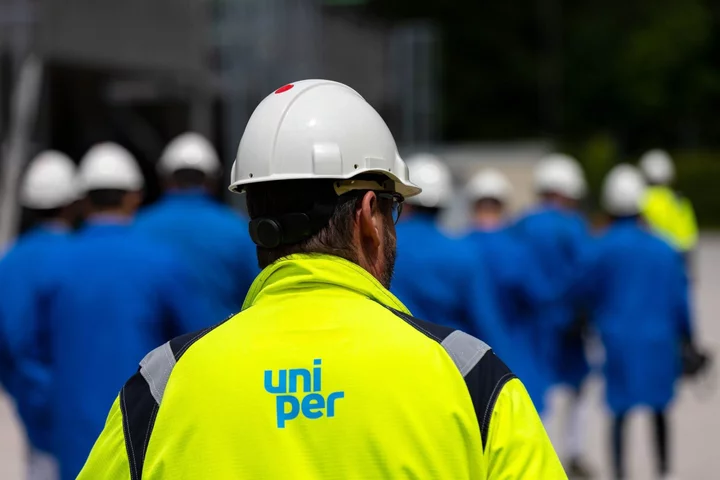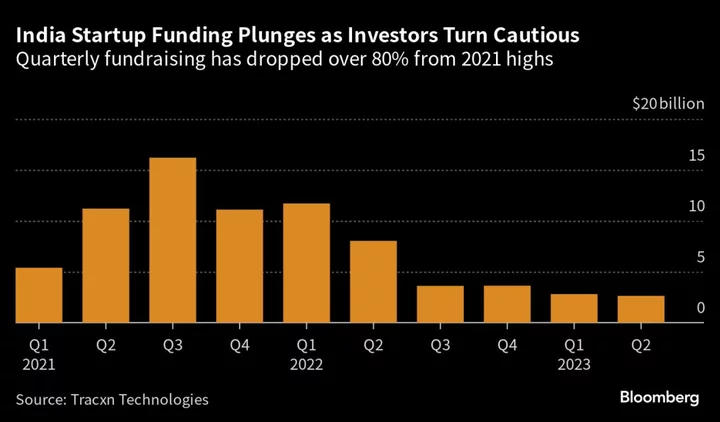Germany, through its KfW development bank, will on Friday sign an agreement to lend South Africa €500 million ($543 million) at below commercial market rates to help it transition away from the use of coal-fired electricity.
The concessional finance forms part of the $8.8 billion in climate financing offered to South Africa by some of the world’s richest nations in a 2021 agreement known as the Just Energy Transition Partnership. It adds to the €600 million Germany and France extended to South Africa last year. The interest rate on the most recent loan was not disclosed.
The loan “is intended to support the South African government in implementing reform measures that contribute to resolving the acute energy crisis in South Africa,” KfW said in a response to a query. It will also contribute to “a socially acceptable and ecologically sustainable restructuring of the South African energy sector and to combating climate change,” KfW said.
This is a boost for the troubled agreement, which has been beset by delays and political infighting in South Africa. Ruling party ministers and officials have expressed concern that the country is being pushed to close down its coal-fired plants, jeopardizing energy security and threatening jobs.
“The signing represents another significant milestone in the implementation of the Just Energy Transition Partnership,” Germany’s embassy in South Africa said in a statement.
State-owned power utility Eskom Holdings SOC Ltd. has so far closed down one coal-fired plant under a different agreement and has said that the facility is no longer viable.
South Africa’s National Treasury didn’t respond to a request for comment.
The JETP — an agreement between South Africa, France, Germany, the US, UK, European Union, Denmark and the Netherlands - is seen as a prototype for similar agreements with Indonesia, Vietnam and Senegal.
(Updates with reference to concessional finance in first two paragraphs, comment from German embassy in fifth)

